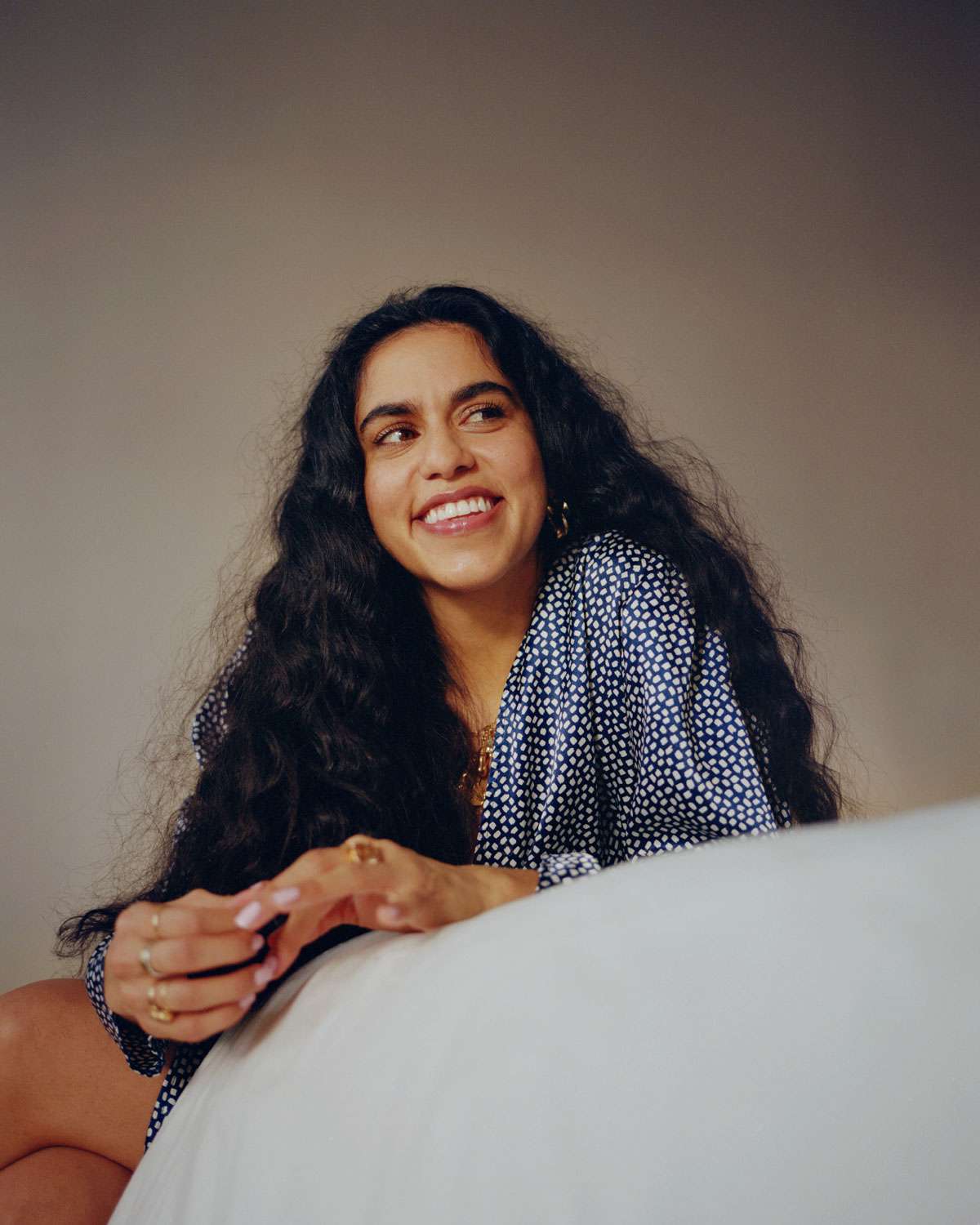"Is it a problem if I say 'arse' instead of 'ass'?" asks British data journalist Mona Chalabi before the cameras rolled for InStyle's Badass Women series. The 34-year-old East Londoner with a pronounced accent was raised by immigrant parents from Iraq in an ethnically diverse community — that is, with the exception of people like her. "Up until I was in my mid-20s, literally the only Arabs that I knew were my immediate family," she says with a tinge of laughter. When Chalabi entered the workforce, she was pleased to feel a pang of recognition with those from the same background. "Someone will make a reference to some cultural thing — they'll just say something short in Arabic, and you're like, 'You have the same keys as me?' They might not go through exactly the same doors, the same things might not be lying on the other side of it, but we have the same keys somehow."
Those proverbial keys helped Chalabi unlock what is now her bread and butter: creating compelling, data-driven illustrations that tackle hot-button topics, like pay inequity, climate change, and the coronavirus, which regularly go viral on Instagram. One of her more recent posts about anti-Asian hate crimes, in response to the horrific Atlanta spa shootings, questions why violence against sex workers is seemingly normalized in mainstream media. Her work has appeared in The New Yorker, The New York Times, and The Guardian and has been exhibited at galleries including the Tate. Now, she's being featured as one of InStyle's Badass Women.
Data visualization wasn't always a clear path for Chalabi. After a brief and unpleasant stint at the University of Edinburgh ("It was my first time being in a pretty much almost all-white environment, and it was such a shock to me"), she moved to Paris to get her master's degree in International Security at the Paris Institute of Political Studies. In an effort to get in touch with her roots, Chalabi studied Arabic in Jordan, but was deterred by the difficulty of the language. She also resented the fact that her peers expected her to speak it fluently simply because her parents do. "I realized I'm a C-grade Arab," she says. "I can't cook shit for you."
After a little soul-searching, even with a bevy of internships under her belt, Chalabi struggled to land a job. "People still just wanted to hire me without paying me," she tells InStyle on the topic of her seemingly swift trajectory. She invested in a one-day workshop on data visualization, and quickly learned the then-data editor of The Guardian was the instructor. "I wrote him about 20 emails afterwards asking if I could come in and do unpaid work experience, but just for one day a week," she said. That increased to two days a week, and when The Guardian requested three, Chalabi insisted on being paid, and soon transitioned to being a full-time employee. "It was really a case of finding a way to get a toe in the door, and then trying to get the whole body in," she says.
Journalism proved to be a natural fit for Chalabi. Though, like too many in 2020, she found herself feeling "bored and depressed" in part due to experiencing isolation on the job. "I really didn't feel heard or respected — I was the only woman that was writing for the team; I was the only immigrant; I was the only person of color." That's when she started illustrating data.
On a whim, Chalabi decided to post one of her illustrations to Instagram, and it didn't take long for the likes to flood in, despite her then-follower count of a meager 73. "It's so validating, even if it sounds shallow, for strangers to say, 'I see this, this makes sense to me, this is helpful for me to understand the world,'" she says. FWIW, Chalabi now has more than 433,000 followers and counting. And she knows she's making a difference.
"I've always viewed the line between journalism and activism as being really blurred," Chalabi said. Her ultimate goal is to use her illustrations to advocate for real, lasting policy change. "I don't want to just talk about the lack of housing rights in New York — I want housing rights in New York to be improved." And on a holistic level, in pandemic times, Chalabi hopes her art will make others feel less alone. "I hope that the people that are represented in those charts will see those charts and feel seen and feel like their experiences are being rendered in a way that makes sense."
As far as Chalabi's career goes, she couldn't be happier doing what, admittedly, she's 'really fucking good at.' "When we're young, we're told to follow our passions, and I think that that is actually sometimes quite damaging and unrealistic," she says. "Figure out what you're good at — there is something that you're going to be really fucking good at — and pursue that, because whatever you're good at is part of what makes you unique."
Source: Read Full Article
